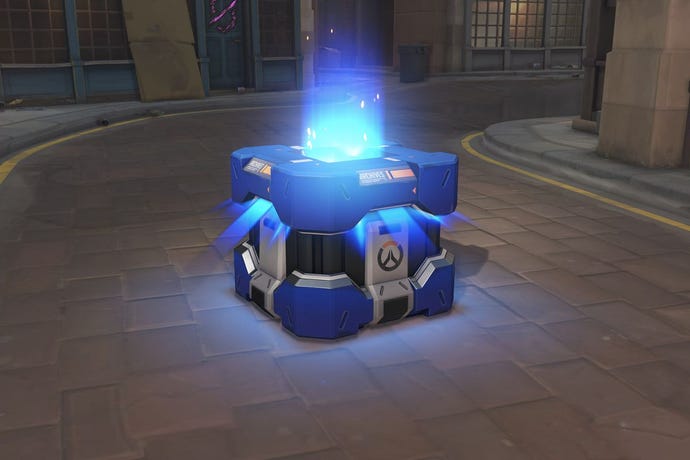Loot boxes push kids into gambling, says NHS mental health director [Update]
England's National Health Service mental health director has published a report claiming video game loot boxes push children into gambling.
Update: The UKIE, the trade association representing the UK's games industry, has responded to Murdoch's report. In a statement, UKIE recognised the report's main concern, but explained that parents and guardians are able to limit in-game spending using existing parenting controls.
"The games industry takes its responsibility to players very seriously and acknowledges that some people are concerned. That is why on the 10th January we launched our Get Smart About PLAY campaign, which is designed to help parents and carers manage play online and in the home," it reads.
"It shows that it is already possible to manage, limit or turn off spend in games with the help of family controls, providing practical guidance on how to do so at www.askaboutgames.com. The games industry has already committed to measures to inform players about purchasing choices, including in regards to loot boxes.
"New platform policies will require optional paid loot boxes in games to disclose information on the relative rarity or probability of obtaining randomised virtual items by the end of 2020, with many companies doing this voluntarily already. The government has committed to conducting a review of the Gambling Act, which loot boxes will form a part of. We look forward to working constructively with them on it."
Find the original report below.
Original story: The chief specifically called out "under the radar" gambling - forms of gambling that might not immediately be seen as gambling.
"Frankly no company should be setting kids up for addiction by teaching them to gamble on the content of these loot boxes", writes mental health director Claire Murdoch in the new report. "No firm should sell to children loot box games with this element of chance, so yes those sales should end."
"Investigations have found numerous cases of children spending money without their parents’ knowledge, including a 16-year-old paying £2,000 on a basketball game and a 15-year-old losing £1,000 in a shooting game," the reports reads.
Murdoch goes on to call game publishers to ban titles with loot boxes, to introduce in-game spending limits, tell players of the odds of actually receiving particular items before they buy a loot box, and to "[s]upport parents by increasing their awareness on the risks of in-game spending."
As it stands, loot boxes are not regulated by England's Gambling Commission. Murdoch's report says this is simply due to a "loophole" - "Despite this, third party websites selling gaming accounts and rare items are commonplace and easy to find on places such as eBay across the internet."
Last year, the Children’s Commissioner for England Anne Longfield called for authorities to include loot boxes in gambling legislation. “Children have told us they worry they are gambling when they buy loot boxes, and it’s clear some children are spending hundreds of pounds chasing their losses,” said Longfield. “I want the government to classify loot boxes in games like FIFA as a form of gambling.” Contrary to the World Health Organisation’s classification of Gaming Disorder as a disease, the report acknowledges that online gaming can help develop social bonds and strategic skill development.
The UK's Digital, Culture, Media and Sport (DCMS) Committee published its own report in 2019 on the effects of addictive mechanics in games, and eventually recommended that European rating board PEGI apply the same rating system it uses for gambling software to games with loot boxes.
In 2019, Microsoft, Sony, and Nintendo extended a commitment to transparency in loot boxes requiring the developers publically disclose the “rarity or probability” of obtaining random items in loot boxes. Fortnite's Epic Games would later join them.









